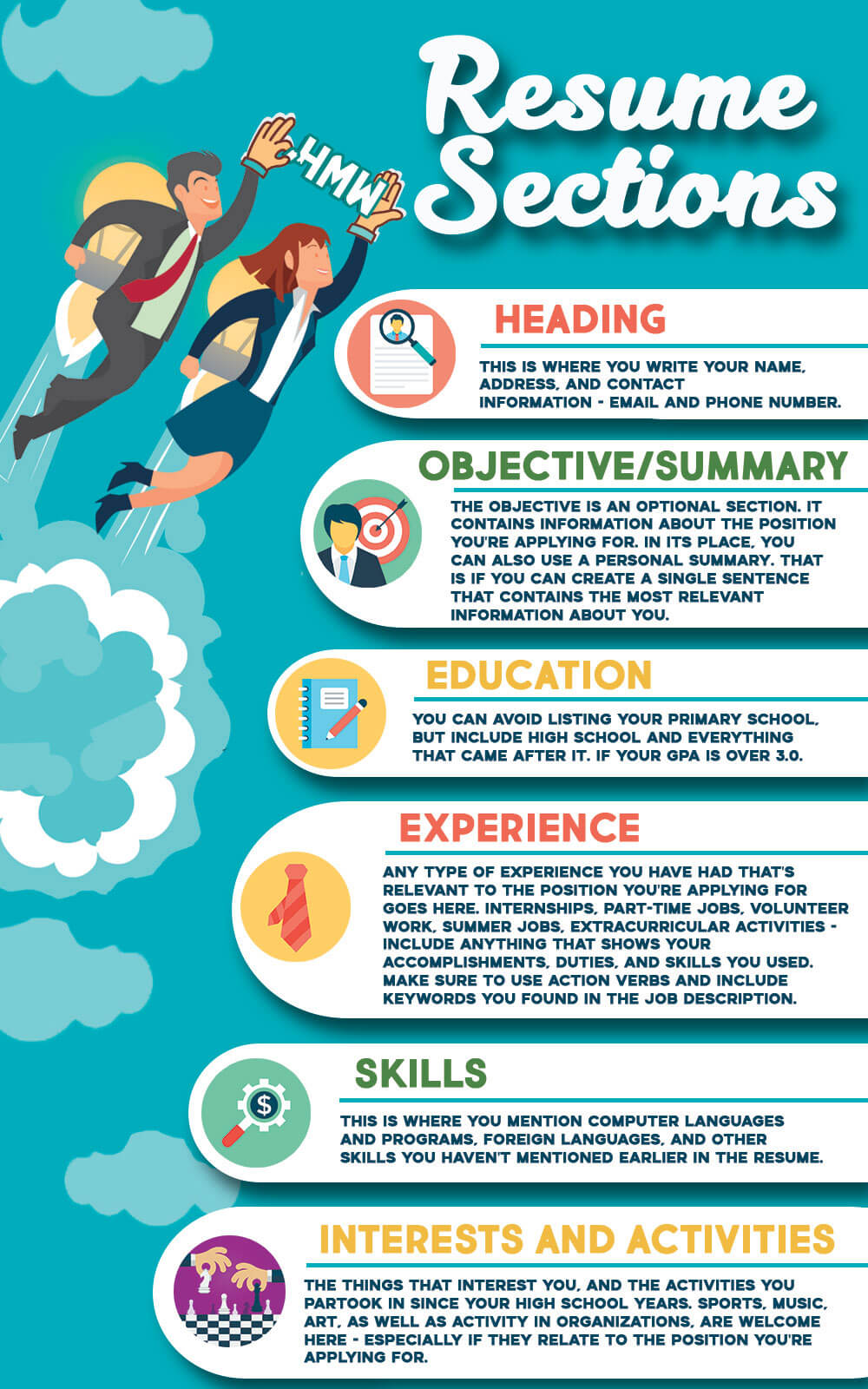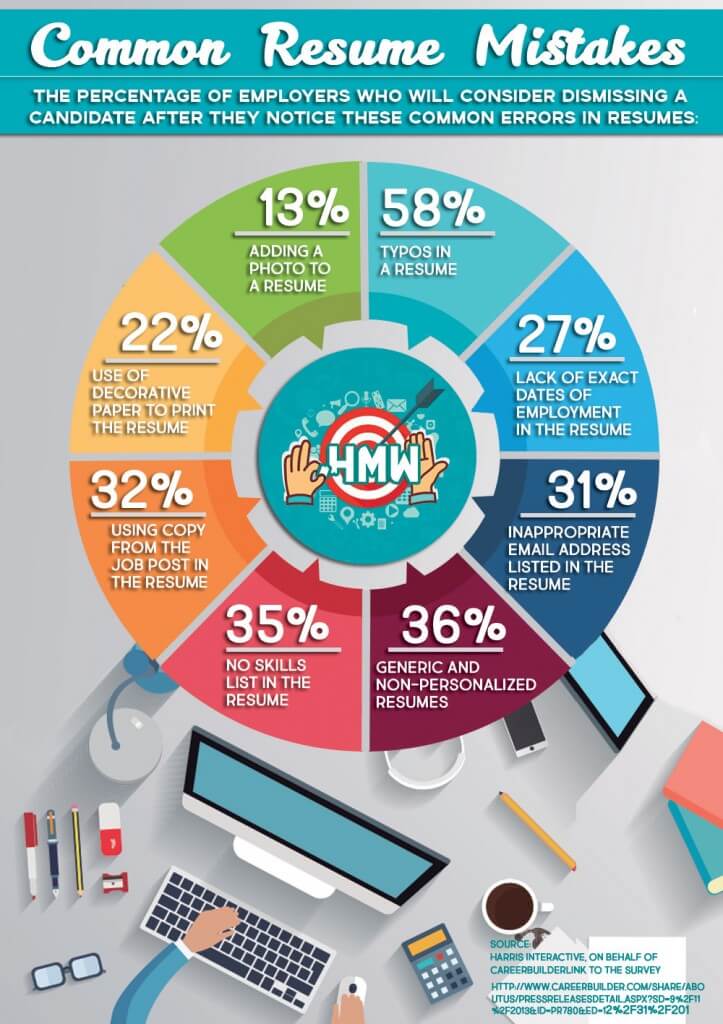Do you see yourself in those statistics?
It’s very common for college grads looking for their first job to think they are well prepared. A report commissioned by the Association of American Colleges & Universities and conducted by Hart Research Associates confirms it.
However, it also says one additional important thing.
Your potential employers wouldn’t agree.
According to the report, there were large discrepancies between how college students assess their preparedness and how employers assess it. In fact, when looking at skills such as working in teams, critical thinking, oral communication, staying current on developments in science, students consistently rate themselves better than employers rate them.
But don’t panic!
It is still possible to find a graduate job for college grads, and if you want to know how they do it, you’re at the right place. It takes a little know-how, you see, about important things like where and how to look for a job, write a resume, and prepare for an interview. Working on those skills employers find important also won’t hurt. It helps a lot, actually, so let’s start there.
The Skills You Need to Have
When potential employers consider you for a job, which of your attributes do you think carry the most weight with them?
Your college GPA? Wrong.
The relevance of your coursework? Wrong again.
According to a 2012 survey performed by The Chronicle of Higher Education, the three most important attributes when evaluating you will be your internships, employment during college, and you college major.
Employers will also assess your skill set. The same study from The Chronicle of Higher Education found that employers think that your college probably didn’t help you develop your written and oral communication skills enough, along with adaptability and decision-making and problem-solving skills.

Writing Your Resume
In the United States, a resume is what you write when you’re applying for a regular job. A CV is what you write when looking for an academic position.
As you’re looking for jobs for college grads, and not academic positions, let’s see what you need to write a great resume.
Makings of a Great Resume
Do you know what makes a great resume? It’s not the fact that it landed you an interview — a great resume doesn’t have to do that all the time. According to Vicki Salemi, Monster’s career expert, a great resume needs to:
- Show the jobs you’ve had in the past;
- Include keywords found in the job description;
- Be free of typing errors;
- Show the relevance of your skills and experience for the position.
But what if this is the first job you’re applying to, and you don’t have a clue about keywords? What if this is the very first resume you’ve ever had to write?
Luckily, a lot of colleges have guides on how to write a resume. They even start teaching their students how to write resumes while they’re at the undergraduate level.
Why wait for the moment when you’re looking for jobs for college grads? You can get plenty of useful advice at your college.
Boston College, for example, advises its students to highlight several important items in the resume.
Cornell University says that the first thing you need to do is inventory your experiences and compile your data.
Harvard University would have you tailor each resume to the type of position you’re applying for.
Resume Sections
Most of these institutions, as well as recruiters, agree on what information your resume should contain.

Types of Resumes
There are three types of resumes:
Chronological Resume
In this type of resume, you arrange the information about your education and experience in a chronological order, starting with the most recent. This is the most recently used type of resume and the one you’re most likely to use when applying for jobs for college grads
Functional Resume
You write a functional resume when you want to put emphasis on your skills and accomplishments and not on dates, job titles, or organizations. This resume is useful for people who have a lot of gaps in their work history or have who had a lot of unrelated jobs.
Combination Resume
A combination resume contains all the data from a chronological resume but still arranges it in a way that puts emphasis on skills and accomplishments.
Quick Tip 1 – Find Help Online
You won’t believe how many websites are there that can help you create your resume. Your college might have its own resume-writing web tools.
If it doesn’t, here are some you might find useful:
Quick Tip 2 – Common Resume Mistakes

Looking for Opportunities
Believe it or not, the numbers are giving you a good chance to find a job relatively quickly after graduation. According to a survey conducted by the National Association of Colleges and Employers (NACE), the Class of 2015 did pretty well for itself. Only 22.1% of students with associate degrees were still looking for a job (or weren’t looking at all) by the end of 2015. The rest were either employed, joined the military, or continued their education. 64.3% of graduates with bachelor degrees found some kind of employment, as did 79.2% of graduates with master’s degrees.
So things are looking good.
But don’t let these statistics fool you into thinking a job will fall into your lap. You need to work hard to get your first job as a recent grad, and the best thing to start with just might be networking.
Networking For College Graduate Job Seekers
Have you heard about the hidden job market? No?
Well, if you take the number of new positions filled each year, and the number of position vacancies advertised, you’ll probably see that more positions were filled than they were advertised. Usually, a lot more. If you lived in Minnesota in 2010, the share of unadvertised positions was up to 75% of the total number of positions filled.
This is the hidden job market. Its size is debatable, and some might even argue it’s a myth, but the reality is, it’s there. To reach it, networking is key.

If you want to be more traditional, you can start networking by mingling with your college’s alumni. Colleges like NYU often organize networking events, while Cornel helps you look up classmates and fellow Cornellians. If your college doesn’t offer any help in connecting you with alumni, you can always mix traditional and modern and use LinkedIn’s Alumni tool.
Using Online Tools
And speaking about the modern job search tools, you should know that working people are relying on them more and more. According to a 2015 Pew Research Center survey, 79% of Americans used online resources and information when looking for jobs. 66% used connections with friends and family, 63% used professional or work connections, and only 32% used employment agencies or ads in print publications.
Online tools like LinkedIn can serve for networking and traditional job search. You can use Twitter to learn about companies you want to work at. The 2015 Recruiter Nation Survey, performed by JobVite, showed that 92% of recruiters use social networks in their jobs. 87% of them use LinkedIn, 55% use Facebook, and 47% use Twitter. 56% of recruiters found candidates using social networks.
The same study shows that 37% of recruiters found candidates using internet job boards. The big three you might want to check out if you want to cover your corners are Indeed, StartJobs, and CareerBuilder.
And don`t forget about the CV builders! For example, if you need to create a professional and outstanding CV just in 5 minutes, Zety – Your Resume Builder will help you.
But just to drive the point about networking and how important it is home, the study also showed that 78% of recruiters filled positions using referrals. Oh, and 55% hired interns.
How to Prepare for the Interview

So, you landed your first interview for a job as a grad student. Congratulations!
But this isn’t a time to rest; no, this is the time you need to take action. All the effort you invested into finishing college, acquiring skills, writing a resume, networking and sending out applications have led to this point – and you need to be prepared.
Research the Employer
This is how your preparation for the interview starts. You don’t have to know the name of the company CEO’s children – that would be creepy – but you need to know at least the basic information about the company. Spending as little as thirty minutes reading the company’s “about us” section on their website might suffice.
Prepare to Answer Questions
You’re not going to sit quietly during the interview. You’ll be asked questions, and you’ll need to give good answers. Questions like “How did you hear about the job?” and “What do you consider to be your weakness?” are very common. So either look for help preparing the answers at your college, or find a list of the most commonly asked questions in interviews and prepare answers to them.
Prepare to Pose Questions
This is another opportunity to show that you’re the best pick for the job. Some, like Likeable Local CEO Dave Karpen, think that asking good questions is the most important thing you should do in an interview. Some questions you might want to ask include “How do you see this position evolving in the next three years?” and “What new skills can I hope to learn here?“
Prepare Your Looks
It’s common sense that you should look presentable for an interview. But just what that means depends on the company. You want to dress at the same level or slightly above what is normal for the company. If the business’ culture involves suits and ties, you dress up the same. If business casual is okay with them, you pick either business casual or professional attire. If the dress code is casual, you can get away with business casual.
Prepare the Things You’ll Bring with You
You can’t go to an interview empty handed. Glassdoor recommends that you bring directions to the interview, identification, business cards, a notepad with a pen, copies of your resume, references, and portfolio.
Prepare Your Nonverbal Communication Skills
Did you hear the rule that says that only 7% of communication is what you say, with the rest of it being how you say it and your body language?
Yes? Well, it’s not completely true.
But your nonverbal communication still matters, and you need to be prepared to be judged on it. You should project confidence and be respectful. Most interviewers recommend that you maintain eye contact, don’t slouch, respect the interviewer’s personal space, and don’t make any exaggerated gestures.
Prepare to Follow Up
It’s important that you follow up on your interview, and there are a couple of ways you can do it. At Harvard Law School, they only advise that you send out thank you notes. You can also send an email, but be careful not to do it too early – a good advice is to do it a week after you were told the decision about the position will be made.
One last piece of advice we have for you – you have to persistent and patient. You’ve seen the numbers that say that, as a college grad, your chances to find a job are good. In fact, the data from the United States Department of Labor’s Bureau of Labor Statistics show that, as of February 2017, there were roughly fourteen millions of people aged twenty to twenty-four who had either full or part-time employment, and a million and a half of people in the same age bracket who were unemployed. And the numbers seem to get even better. So hang in there and remember to practice your skills, network, search for the perfect job with tenacity, and approach every interview with due diligence.
And if any of the advice you’ve found here helps you get your first job interview, or even your first job, don’t be a stranger.
Here is a quick summary on writing a CV:

Stop by again and tell us about it – we’d love to know.
Happy hunting!
Stuck on writing an essay? Our Online Essay Writer service is always ready to help you!











